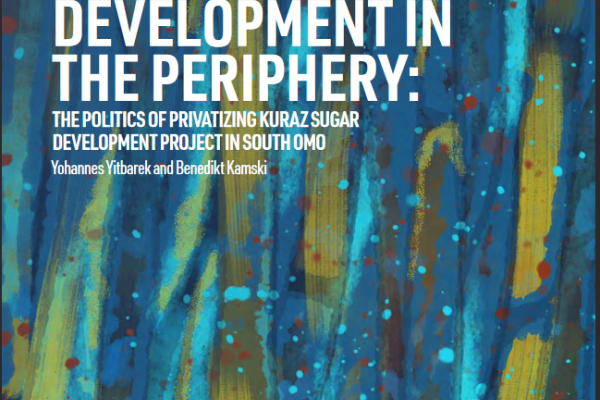
Since the Prosperity Party (PP) came to power in Ethiopia in 2018, expectations have grown that its government will revitalize Ethiopia’s sugar industry through the privatization of eight sugar factories, including plantations of several thousand hectares in peripheral areas of the country. This comes in the context of the country’s sugar estates—a central component of the state-led development strategy pursued by the Ethiopian People’s Democratic Front (EPRDF) government—suffering a succession of cost overruns, design errors and technical overhauls. The Kuraz Sugar Development Project (KSDP), established in 2011, is a state-led agricultural development scheme of unparalleled scale situated in South Omo in the southwestern lowlands (now part of the newly formed Southern Ethiopia Region). The project, which faced considerable challenges under EPRDF, has continued to struggle despite the PP’s sugar sector reforms and privatization programme. KSDP constitutes an exemplary case for the economic difficulties and conflict potentials currently experienced throughout the sector, with some lessons that can be learned. While the costs of completing KSDP as initially intended are high, the considerable investment made thus far should be considered more than mere sunk costs. Given the lack of socioeconomic trickle-down effects felt by the local population, as well as the largely irreversible transformation wrought on the region’s physical landscape, the project cannot be halted without additional negative repercussions. The effects of KSDP’s failed implementation are multi-pronged. At the top, high- ranking officials and contractors, including the Metals and Engineering Corporation (MeTEC), associated with the previous EPRDF leadership have been side-lined, while the Ethiopian Sugar Corporation (now the Ethiopian Sugar Industry Group) has undergone a fundamental reform process under the PP to facilitate the partial sale of the dysfunctional KSDP to private bidders. On the ground, socio-cultural dynamics have been impacted by changes to the environment and customary agropastoral land use practices, and an influx of labourers—mainly to the detriment of local livelihoods. This has several potential consequences, including stimulating local resistance to the project and aggravating violent social conflict. As such, consultation with local communities and mutually achieved consent are prerequisites if KSDP and similar mega-projects are to achieve long-term success. Specific areas of focus with respect to the future of KSDP include transparency andaccountability in the privatization process (including the establishment of effective investment-bidding and benefit-sharing mechanisms and participatory decision-making structures); participatory resource management (including the establishment of community conservation areas); and compensation and rehabilitation strategies (with priority given to the provision of social services and compensation for livelihood loss).
